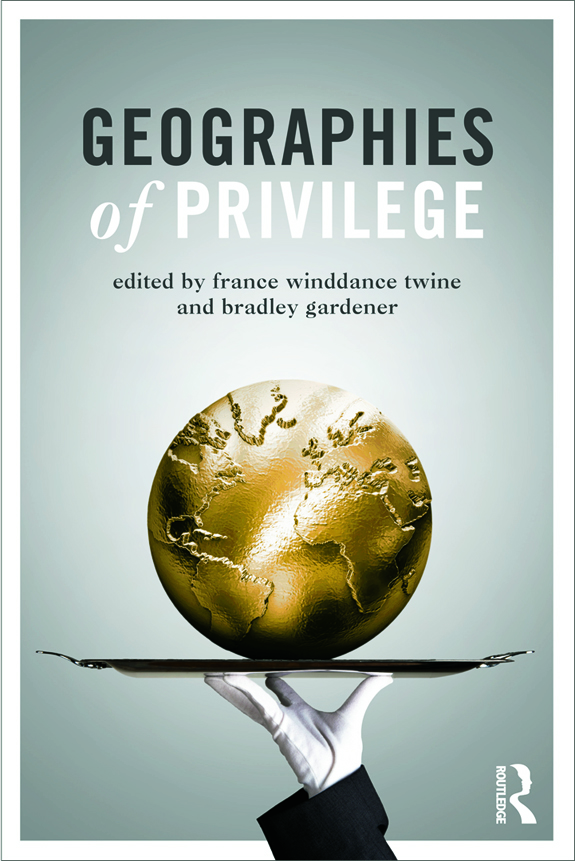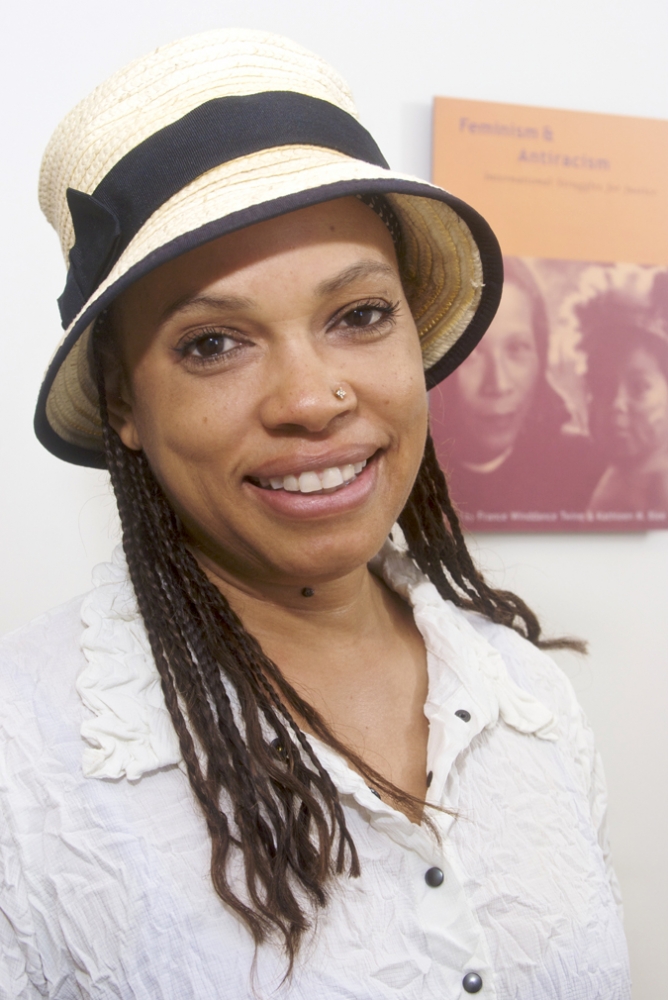
Considering Issues of Privilege From a Geographical Perspective

For almost everyone in the world, privilege — financial or otherwise — derives from who we are, where we are born, where we happen to live at any given time, and how well we can convert those factors into social power.
In her new book, "Geographies of Privilege" (Routledge, 2013), France Winddance Twine, a professor of sociology, argues that physical space, geography, and locality are key to understanding how power and privilege operate in diverse national contexts. Geography and locality, she says, are central to an analysis of power or social inequality.
"One of the reasons I published this book is because, at least in sociology, when people have studied privilege the focus has been on the vulnerable — ethnic and racial minorities, women, groups perceived as powerless," Twine said. "And I think it's important that we adjust the lens to see how global privileges operate from the perspective of the elite, as well as the disempowered."
The book, co-edited with Bradley Gardener, a visiting assistant professor at Temple University, is an interdisciplinary and transnational volume that includes contributions from sociologists, anthropologists, historians, cultural geographers, and ethnic studies and social justice scholars working in regions typically neglected in much of mainstream sociology. "One of the main concepts that inspired me was that of spatial justice, which comes from the Marxist theorist Edward Soja," Twine said. Soja, a distinguished professor emeritus of urban planning at UCLA, Twine noted, wrote the groundbreaking book, "Spatial Justice," in which he argued that space is not neutral, and that how we experience it is informed by power relations.
In the section on post-colonial racism and transnational migration, Twine examines issues of privilege from the perspective of those who do have the advantages in question — i.e., forms of social, economic, and cultural capital — as well as those who don't. "These chapters move between South Africa, the United Kingdom, the European Union, and Italy to examine how easy it is for some people to travel across nation-state boundaries while others are incarcerated in detention camps," she explained. As an example, she cited her recent trip to Lebanon. "When I went to Beirut, I entered as a United States citizen," she said. "I could apply for a visa upon arrival at the airport — and not pay a fee — and enter the country. This is an example of a form of privilege that I possess and that wouldn't have been the case if I were another nationality."
So citizenship status clearly matters — in that situation. In another, not so much. "It's important to think about how we move through spaces, and who's policed and who isn't, and which bodies bear the cost of violence as they move through spaces," Twine said. "As Americans, we've become accustomed to seeing the shooting of unarmed males all across the country. One could argue that those of us who aren't in that body have privileges that are invisible to the rest of us who aren't routinely stopped, harassed, and defined as dangerous." In that case, racial status, gender, and age are more relevant than citizenship status for U.S.-born men who have native English accents.
"In Chicago, citizenship status did not protect U.S. citizens from police violence or routine discrimination in public places," she said.
And for immigrants, the question of privilege often lies in their countries of birth, their skin color, and their occupation. "I didn't grow up around Spanish-speaking immigrants," said Twine, who was raised in Chicago. "The immigrants I knew in Chicago — Irish, Polish, Russian, Latvian, and other Eastern Europeans — were what I would call privileged immigrants. Nobody questioned their right to be in this country." It wasn't until Twine moved to the Mission District of San Francisco that she became aware of how her citizenship was sometimes a form of privilege. It meant she didn't have to worry about some of the issues that preoccupied her Spanish-speaking neighbors.
That, Twine continued, is how power and privilege operate. It doesn't have to be named. "It's what we don't have to take for granted if we're a citizen, heterosexual, white middle class, or speak English with a particular accent," she said. "The issue is what forms of currency — social, symbolic, cultural — you have as you navigate through economic, public, private, and occupational spaces. The book provides case studies that help students understand this package of invisible privileges."
Complicating the concept of privilege is its dynamic nature and the way it morphs as people move across geographic zones. A person considered privileged in one location is not necessarily so in another. "I may be a elite — same body, same color — in Brazil, but I come to the U.S. and all of a sudden I'm not just an elite," Twine said. "Here, I'm also black, or Latina, or racially ambiguous. Privilege is dynamic, and it's paradoxical because we aren't even aware of a lot of the privileges we possess — we don't really see them — until they're taken away."
A goal of the book, Twine explained, is to help readers understand that many of the privileges we enjoy are contingent upon locality and geography as well as with the people with whom we are interacting, our nationality, social characteristics — such as gender and occupation — and, perhaps most important, how these social attributes are interpreted by those who possess power.



